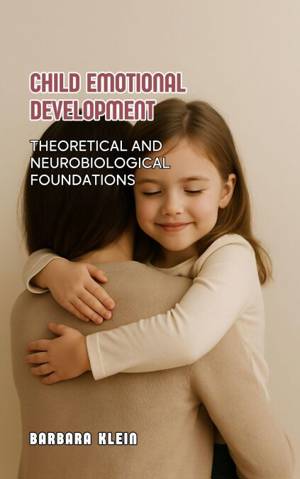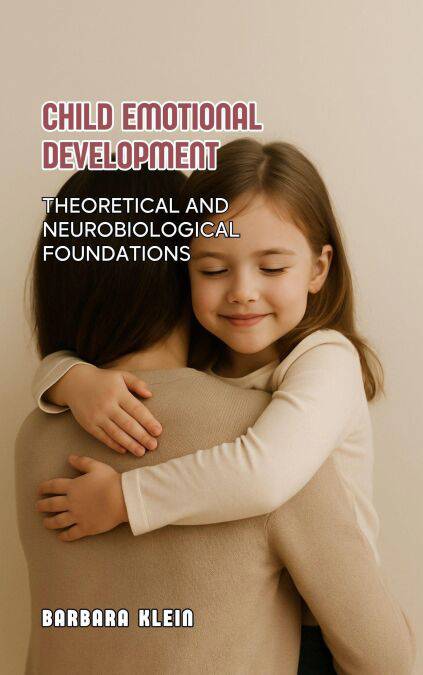
- Afhalen na 1 uur in een winkel met voorraad
- Gratis thuislevering in België vanaf € 30
- Ruim aanbod met 7 miljoen producten
- Afhalen na 1 uur in een winkel met voorraad
- Gratis thuislevering in België vanaf € 30
- Ruim aanbod met 7 miljoen producten
Child Emotional Development: Theoretical and Neurobiological Foundations E-BOOK
Child Emotional Development: A Multidisciplinary Approach
Barbara KleinOmschrijving
This book is an essential reference for professionals, researchers, and students interested in emotional development in early childhood, offering a comprehensive and original synthesis of the main theoretical and scientific foundations that explain how emotions are formed, organized, and transformed during infancy.
With an interdisciplinary and up-to-date approach, the work integrates contributions from developmental psychology, affective neuroscience, psychoanalysis, genetics, epigenetics, education, and the philosophy of childhood, providing a broad analysis of the emotional processes in early childhood. Key topics include emotional regulation, attachment and affective bonding, temperament, brain plasticity, toxic stress, emotional expression, self-regulation, neurodevelopment, and the effects of early experiences on mental health and self-construction.
Structured in eight chapters, the book ranges from historical and cultural paradigms of emotion to the neurobiological and environmental bases of affect, also addressing research methods in child psychology and the ethical challenges of studying young children. It emphasizes methodological triangulation and proposes an integrated view of affect as a biopsychosocial, relational, and cultural phenomenon.
Targeted at fields such as psychology, early childhood education, developmental neuroscience, social work, pediatrics, pediatric nursing, and public policy for childhood, this work offers theoretical and practical tools for those engaged in emotional care during early childhood, with a focus on mental health promotion, teacher training, and the integral development of the child.
More than a technical compendium, this book is an ethical reflection on the role of emotion in childhood: how do we listen to children's emotions? How do we protect subjectivity in vulnerable contexts? How do we turn care into policy and listening into daily practice? By combining academic rigor and human sensitivity, the book affirms the importance of recognizing affect as a founding dimension of childhood—and thus, as a basis for building a more empathetic, just, and responsible society.
Specificaties
Betrokkenen
- Auteur(s):
- Uitgeverij:
Inhoud
- Taal:
- Engels
- Reeks:
Eigenschappen
- Productcode (EAN):
- 9798227874764
- Verschijningsdatum:
- 31/05/2025
- Uitvoering:
- E-book
- Formaat:
- ePub

Alleen bij Standaard Boekhandel
Beoordelingen
We publiceren alleen reviews die voldoen aan de voorwaarden voor reviews. Bekijk onze voorwaarden voor reviews.











